How to Plan Your Perfect Vacation in Israel
There’s nothing we all look forward to more than a good vacation and after a year of Corona, we’ve never needed one more than now! Of course, life after the pandemic means we’re a lot more health-conscious and we want to stay as safe as possible when travelling abroad. That’s why Israel, whose vaccination record is the envy of the world, is a great choice. Here are a few tips from us on how to make it a trip you’ll never forget:
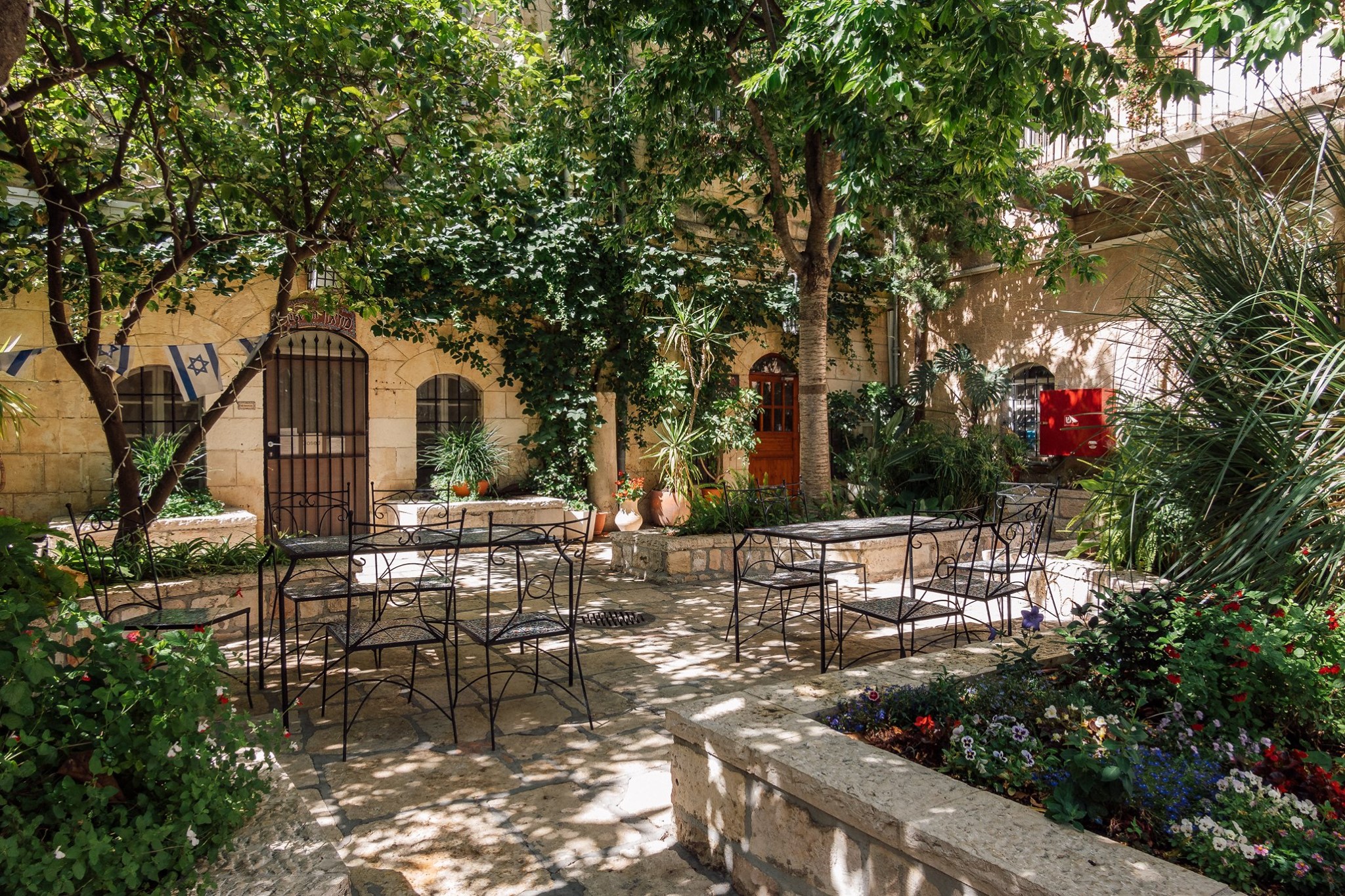
Jerusalem courtyard. Photo credit: © Dmitry Mishin
1. Vaccines and Travel Insurance
Let’s start with the question on everyone’s mind - what are the Corona regulations? Well, first of all, and it probably goes without saying, all visitors will need to have been vaccinated. From 23rd May 2021, along with a Vaccination Certificate (or Certificate of Recovery), you’ll be able to enter Israel but only as part of an organized tour package. It is hoped that by July, this will be extended to individual travelers.
The following guidelines apply to all tourists:
- No more than 24 hours before you fly, fill out a passenger statement form - once approved, you will have entry clearance.
- Take a COVID-19 PCR test at least 72 hours before departure
- After arriving at Ben Gurion airport, show both the entry clearance and negative COVID-19 test result to staff.
- Take another COVID-19 test at the airport, as well as a serology test (to show that there are antibodies in your blood).
If the results are good, you’re free to start enjoying yourself! Don’t forget to carry a copy of your Vaccination Certificate on you, whilst traveling, to show where necessary. We should also point out that Israel has a healthcare system that is the envy of the world so, in the event that you do feel unwell, you will be assured of first-class treatment (by the way, nearly all medical professionals here speak excellent English). Just make sure you have comprehensive cover from a good travel insurance policy.
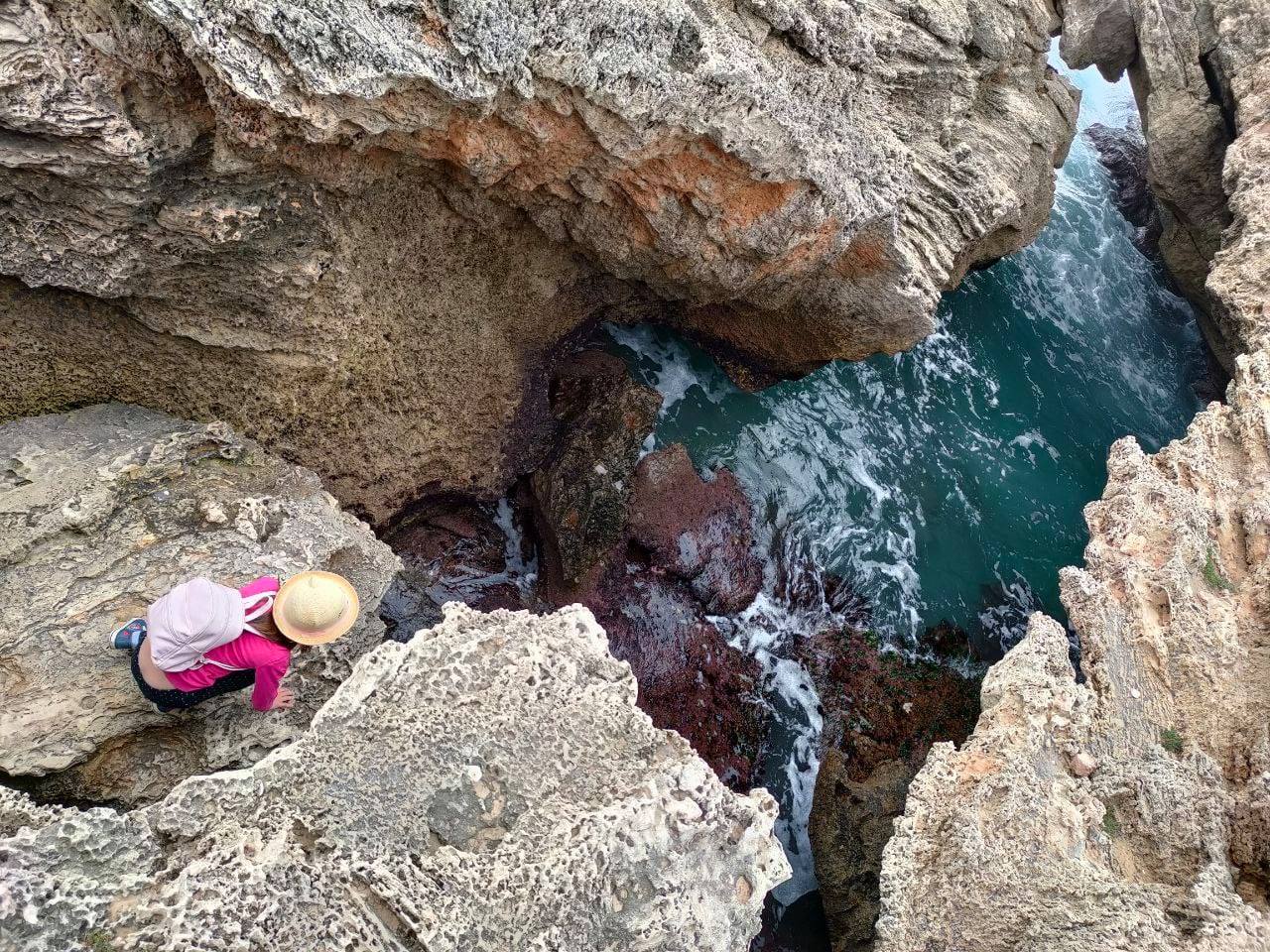
Tourist at HaBonim Beach, Israel. Photo credit: © Dmitry Mishin
2. When? Low or High Season?
Another excellent question. Israel has a subtropical climate, with long, hot summers and cool winters (although not too much rain and quite a few sunny days). If you love the heat (and sunning yourself on a beach) and then July to September will suit you perfectly (remember that in Jerusalem, the heat is dry but on the coast, it is more humid). However, if you want to hike in the Negev or Arava desert (or ski at Mount Hermon!), then the winter months will suit you better.
The high season in Israel isn't just the summer though - it also includes the Jewish holidays (Passover in April and the High Holidays in September/October). Prices will be higher than and attractions busier. As a rule of thumb, spring and fall are always recommended for a vacation, with plenty of blue-skied and sunny days, allowing you to travel in shorts and sandals and eat outdoors at night. And if you want to travel in January and February, whilst it may be a little more cold and rainy, it still won’t resemble the wintery months of Europe - and there will be less of a crowd at the major attractions.
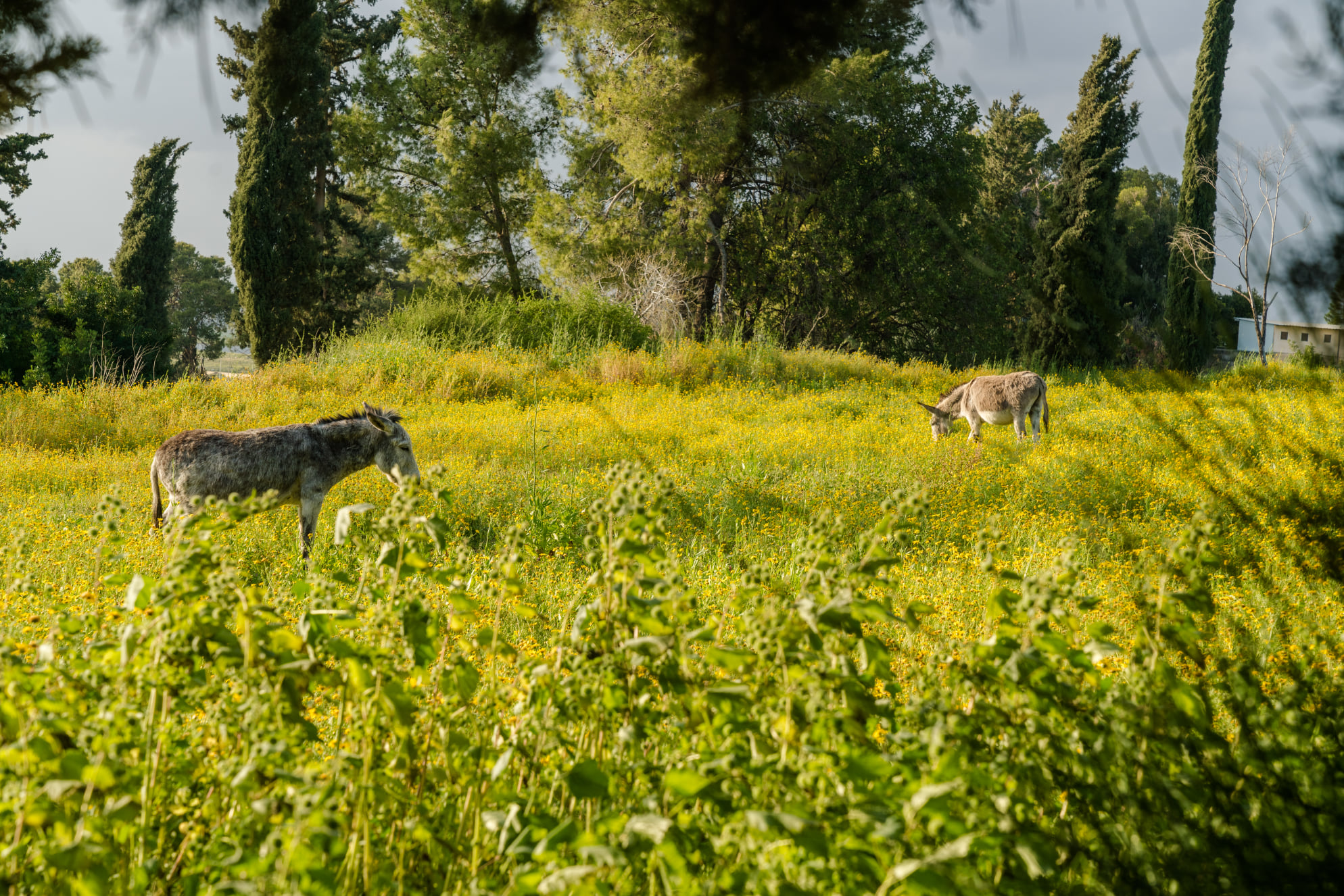
Spring in Latrun, Israel. Photo credit: © Dmitry Mishin
3. Plotting an Itinerary
A lot depends on how long you’re coming for - 7 days or 2 weeks in Israel - and it is never enough. At present, you need to travel as part of an organized tour package which actually has many advantages in any event - the services of an experienced tour guide, the chance to see a lot in a short space of time, pre-booked accommodation and the opportunity to make new friends.
Whilst it’s possible to pack a lot in, over a week, we’d recommend one of Israel and Jordan tour packages, which, as well as offering you all kinds of Israel attractions, include a free day (useful for relaxing, shopping, and sunbathing!) and a day trip to the ancient city of Petra in Jordan.
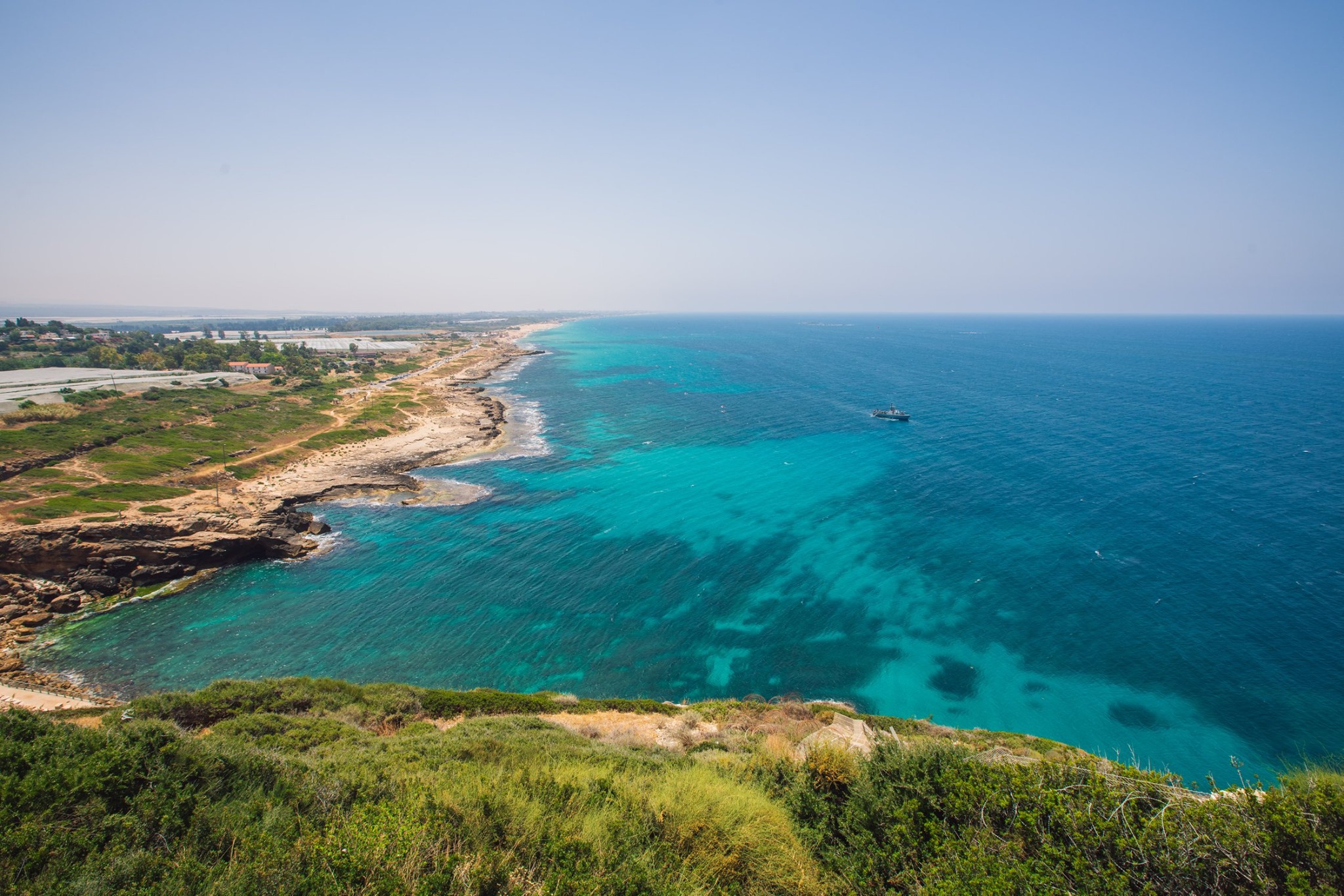
View from Rosh Hanikra, Israel. Photo credit: © Dmitry Mishin
4. Choose your Travel Style/Partner
Once you’ve booked your vacation, think about what kind of trip you want it to be - are you a solo traveler, a couple, a family, interested in a historical/archaeological tour, or visiting as a pilgrim?
Solo travelers - hopefully, by July 2021, solo travel will be permitted once more. Israel’s a very easy country to explore alone - almost everyone speaks English and public transport is cheap and air-conditioned. And if you do find yourself wanting either the services of a guide or a bit of company, there are a wide range of day tours in Israel to choose from.
For couples - if you’ve rented a car, why not spend a couple of nights at a zimmer? These privately-owned units can be found all over the country, and are often quiet, pastoral, and very romantic - the perfect place to get away from it all.
For families - Israel's an incredibly child-friendly destination. Whether it's a museum, nature reserve, water park, beach, or zoo, your kids are bound to have a ball.
For historians - if you love history or archaeology, you’ve hit the motherload. Classical tour packages give you the opportunity to explore extraordinary sites such as Jerusalem, Rosh Hanikra, and Masada.
Pilgrimage - a visit to Israel is often a once-in-a-lifetime experience for Christian pilgrims and Christian tour packages are a fantastic way to enjoy what is bound to be both an emotional and moving journey, whilst you walk in the footsteps of Jesus.
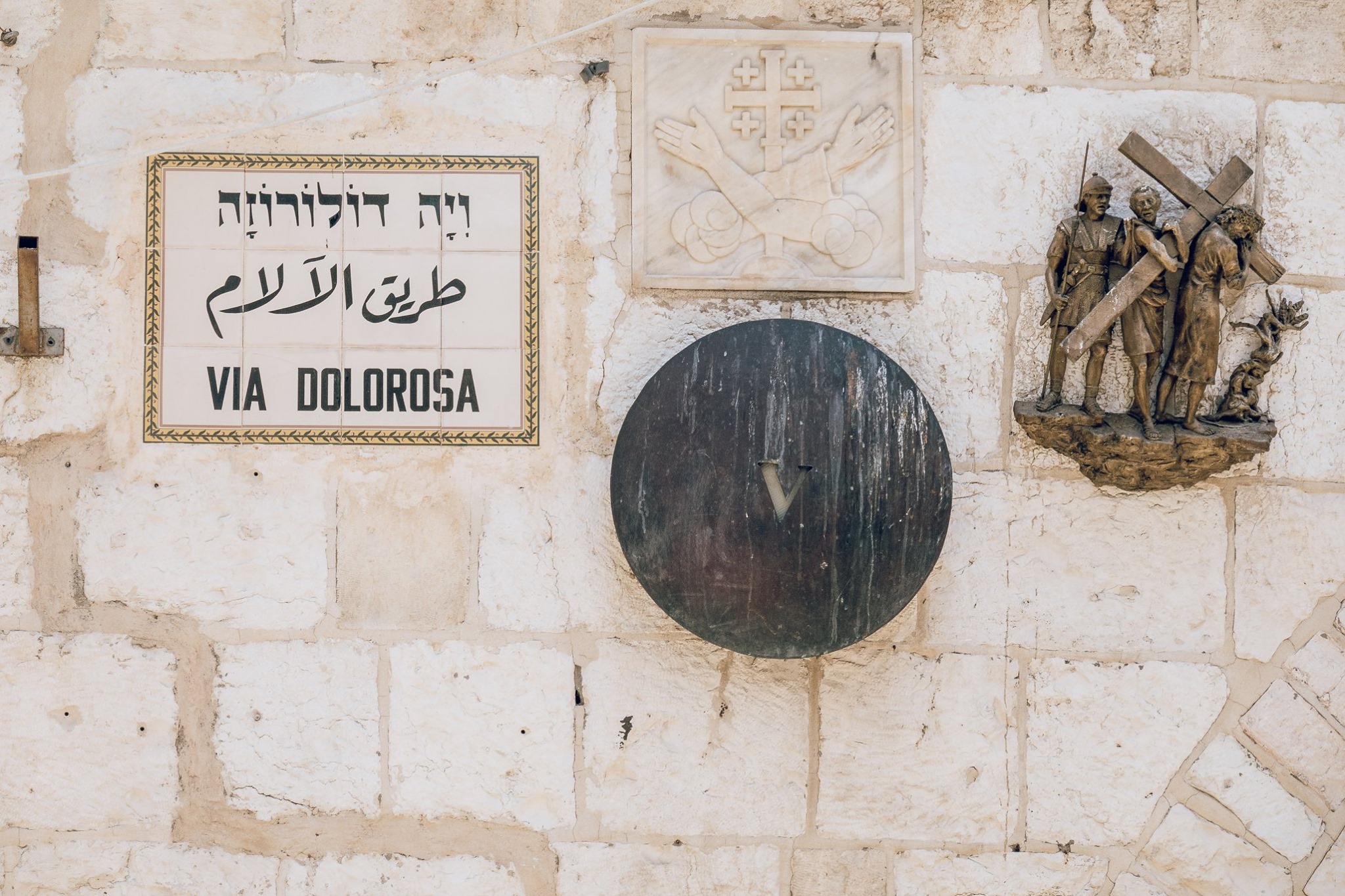
Via Dolorosa, Jerusalem. Photo credit: © Dmitry Mishin
5. Visas and Formalities
For many visitors, obtaining a visa for your Israel vacation is not an issue. In such cases, entry for 90 days is automatic (don’t forget your Corona Vaccination Certificate!) It is a good idea to check and see if you are on the list of countries with which Israel has an Exemption Agreement. If you are not, you can find further information about visa applications on the country’s Foreign Affairs dedicated page.
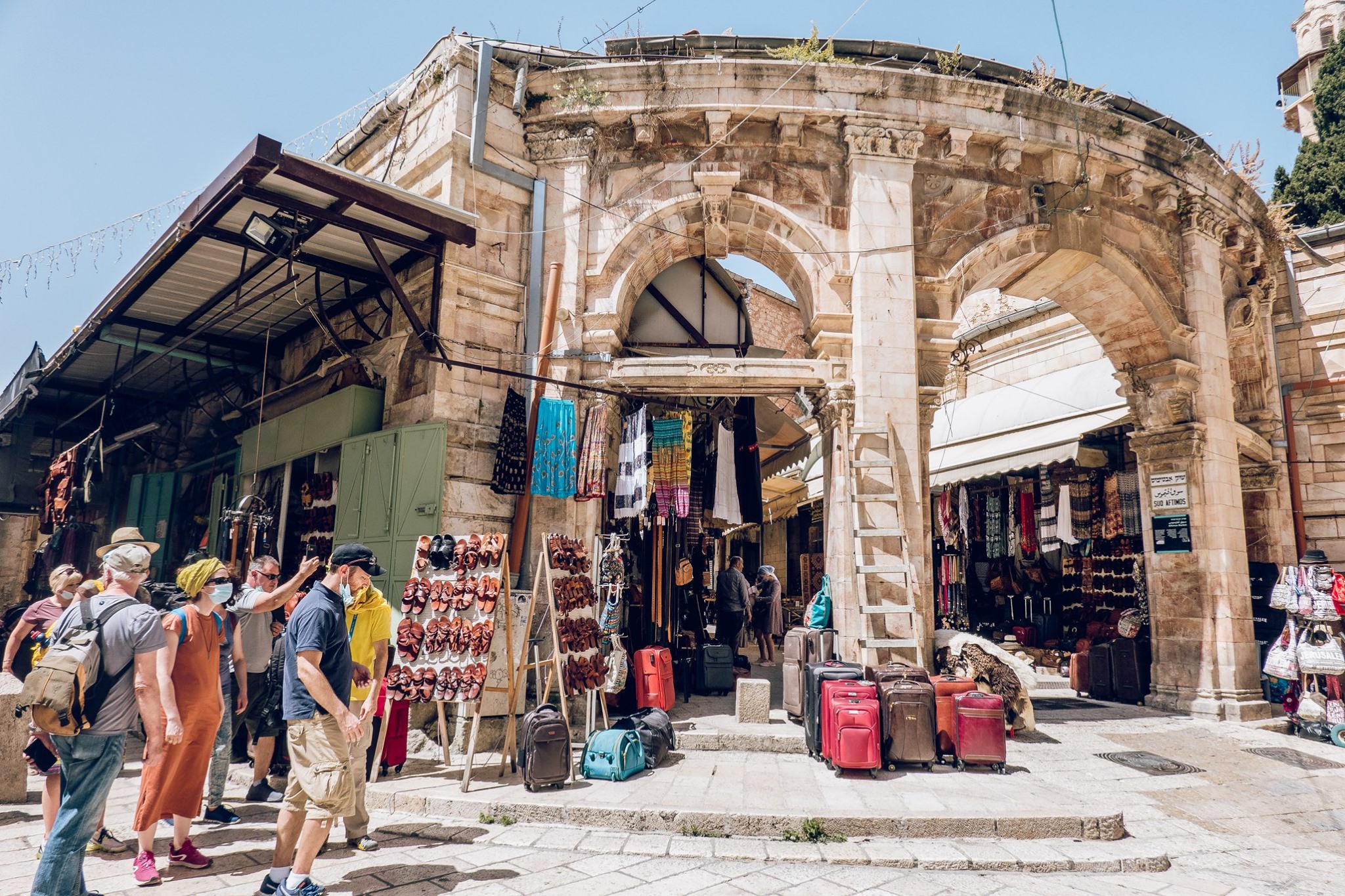
Tourists in Jerusalem. Photo credit: © Dmitry Mishin
6. Booking Accommodation
Israel has all kinds of accommodation available - from luxurious five-star hotels and romantic zimmers, to self-catering apartments, youth hostels, campsites, and even Bedouin tents! Kibbutz accommodation gives visitors a chance to see how Israelis live, as does renting a small apartment in Jerusalem or Tel Aviv, where you will quickly get to know the neighborhood.
Many places offer a reasonable cancellation policy, and never more so than now. When booking any kind of accommodation make sure to check that you can cancel your stay at short notice - flexibility really matters!
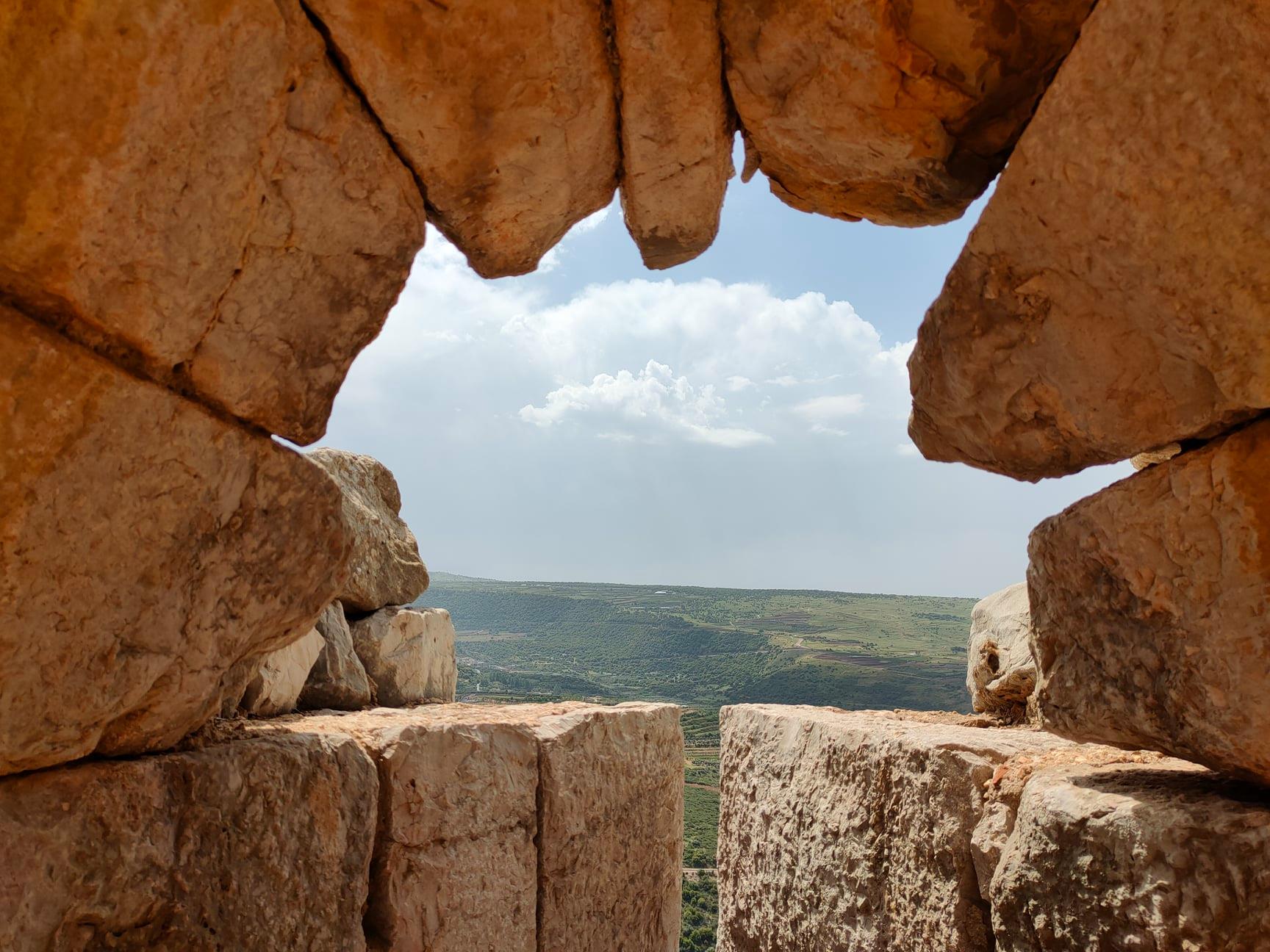
Nimrod's castle. Photo credit: © Dmitry Mishin
7. Transportation in Israel
Traveling around Israel is easy, whether you prefer public transport, taxis, car rental, or the services of a personal driver, it’s up to you. From Ben Gurion airport - taxis can be found by a stand outside the entrance to the arrival gate. There is also a reasonably priced train service that runs frequently to all major cities in Israel. Airport transfers are an excellent idea for those who want peace of mind.
Buses and trains - public transport in Israel is good - buses run often and are cheaply priced - a good idea is to buy an electronic green Rav Kav card and load it up with the money. The new train route between Tel Aviv and Jerusalem takes only 29 minutes and at a cost of 21.50 NIS ($6.50) is a bargain. Please note that there is no public transport on Shabbat (i.e 2 hours before Shabbat begins on Friday and an hour after it ends on Saturday). Of course, if you are traveling in Israel as part of a guided tour, this won’t be a problem.
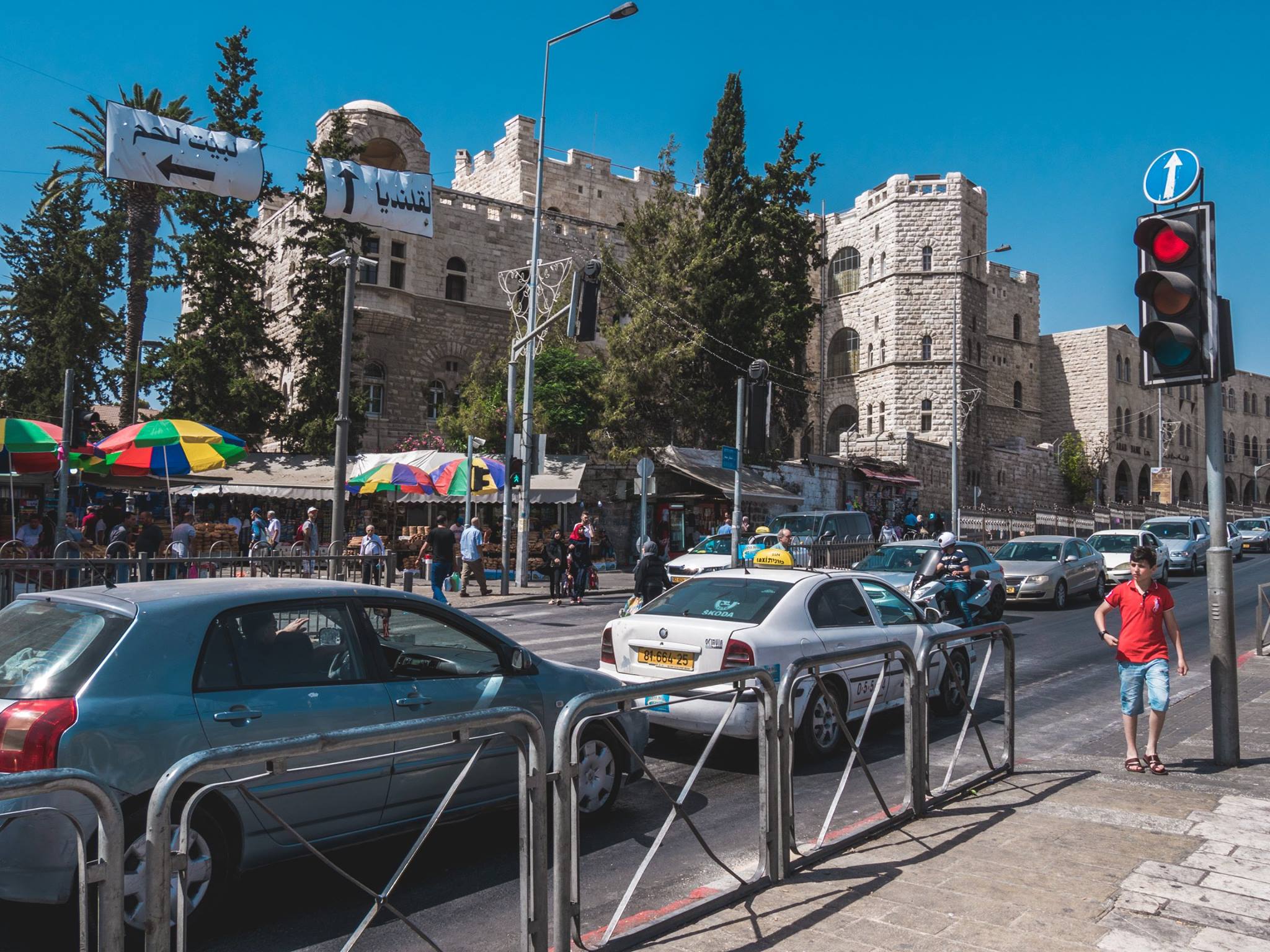
Taxi in Jerusalem street. Photo credit: © Dmitry Mishin
Taxi - you can hail taxis on the street easily or use the ‘Gett’ app.
Renting a car - this is easy and not too costly.
Guided tours in Israel - to maximize what you can see in a day, and skip the hassle of driving, why not take a guided day tour? All of our guides are experienced and knowledgeable and we use comfortable air-conditioned buses (ideal in the hot summer months).
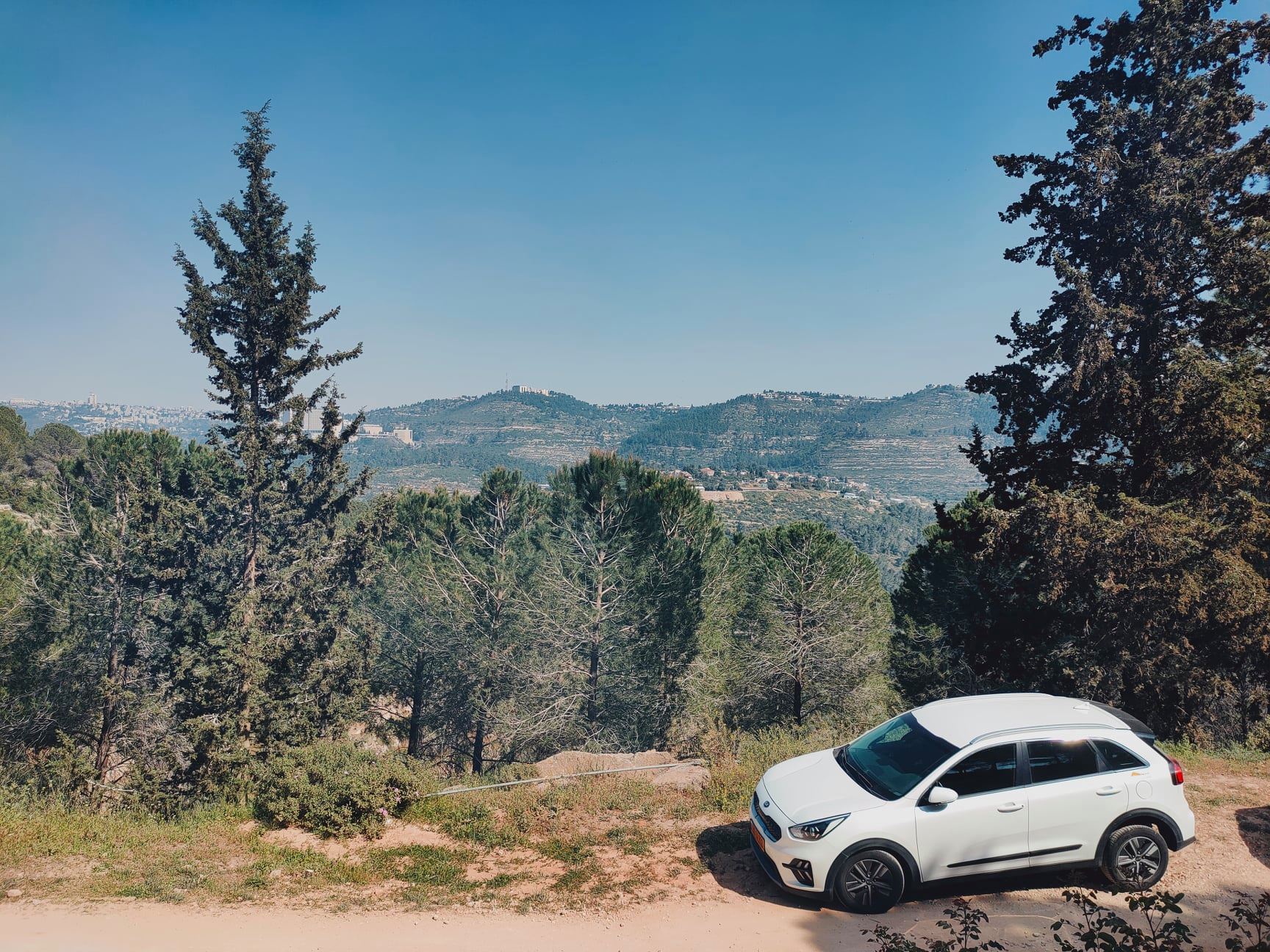
Sataf Forest, Judean highlands. Photo credit: © Dmitry Mishin
8. Top Attractions
It’s hard to know what to see first in Israel. Jerusalem is a must, of course - both the Old City, which is home to the Church of the Holy Sepulchre, the Western (Wailing) Wall, Dome of the Rock and many other places of great historical significance. Outside the ancient walls, the Israel Museum (a treasure trove of art, sculptures, and home to the Dead Sea Scrolls) and Yad Vashem (Israel’s incredibly moving Holocaust museum) are must-visits. Nor should anyone leave Jerusalem without a visit to the lively, bustling Mahane Yehuda market.
In the north of the country, the Sea of Galilee and the many pilgrim sites (the Mount of Beatitudes, Capernaum, Yardenit) are always popular, and a short drive north, to the Golan Heights, is a delight in itself, not just for the scenery but as a chance to explore some boutique wineries. On the coast, don’t forget Haifa (with the impressive Bahai Gardens) the beautiful Crusader City of Acre and Caesarea, with its impressive Roman ruins.
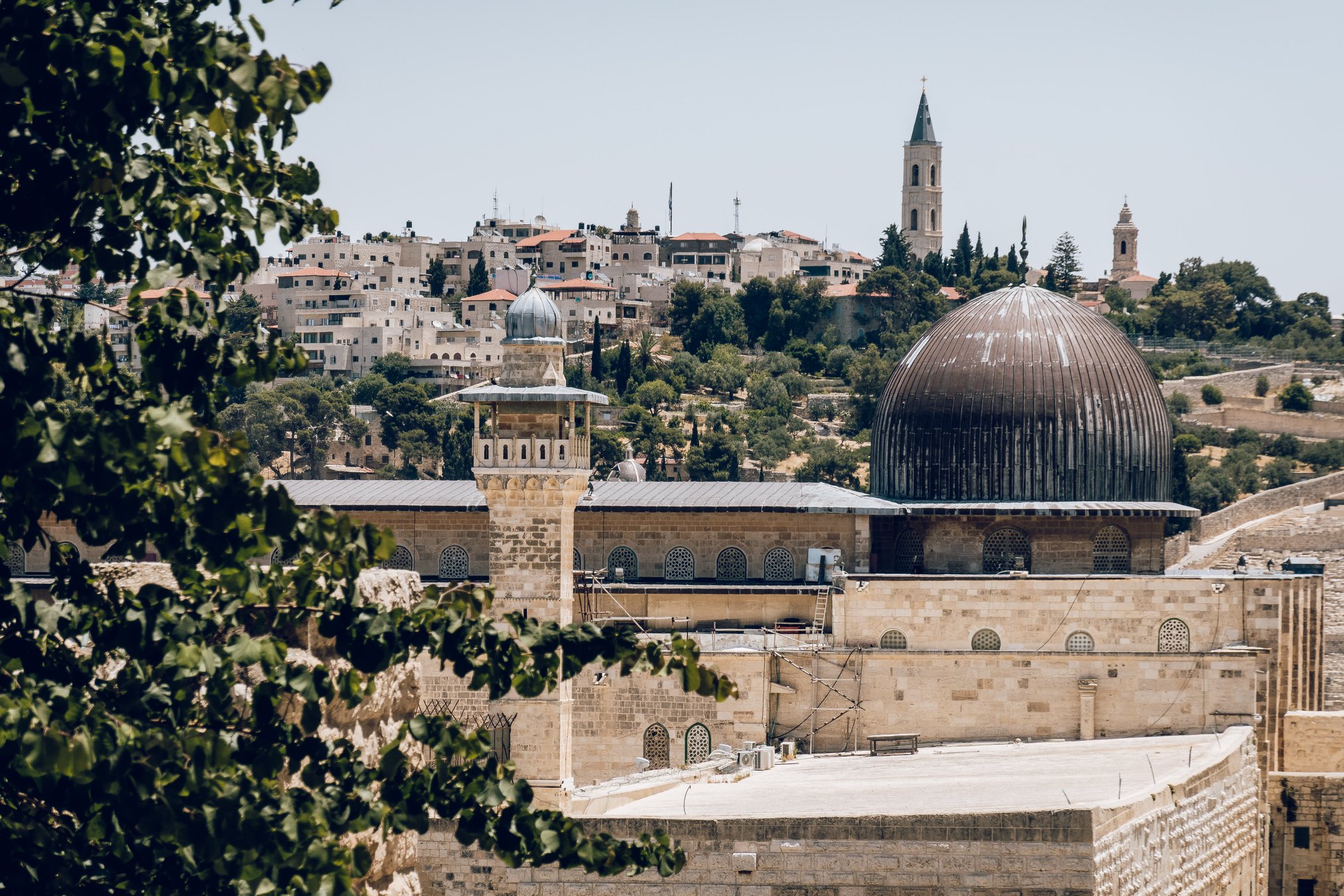
Jerusalem rooftop view. Photo credit: © Dmitry Mishin
Don’t forget to spend a couple of days in Tel Aviv too. The White City as it is known, because of its beautiful Bauhaus buildings, is packed with cafes, restaurants, small stores, fine museums, and some phenomenal beaches (all with their own unique flavor). With its wonderful promenade (Tayelet) from which you can walk all the way from the Old Port (Namal) to historic Jaffa, local coffee shops, and lazy beat, Tel Aviv is the ideal way to end your perfect vacation.
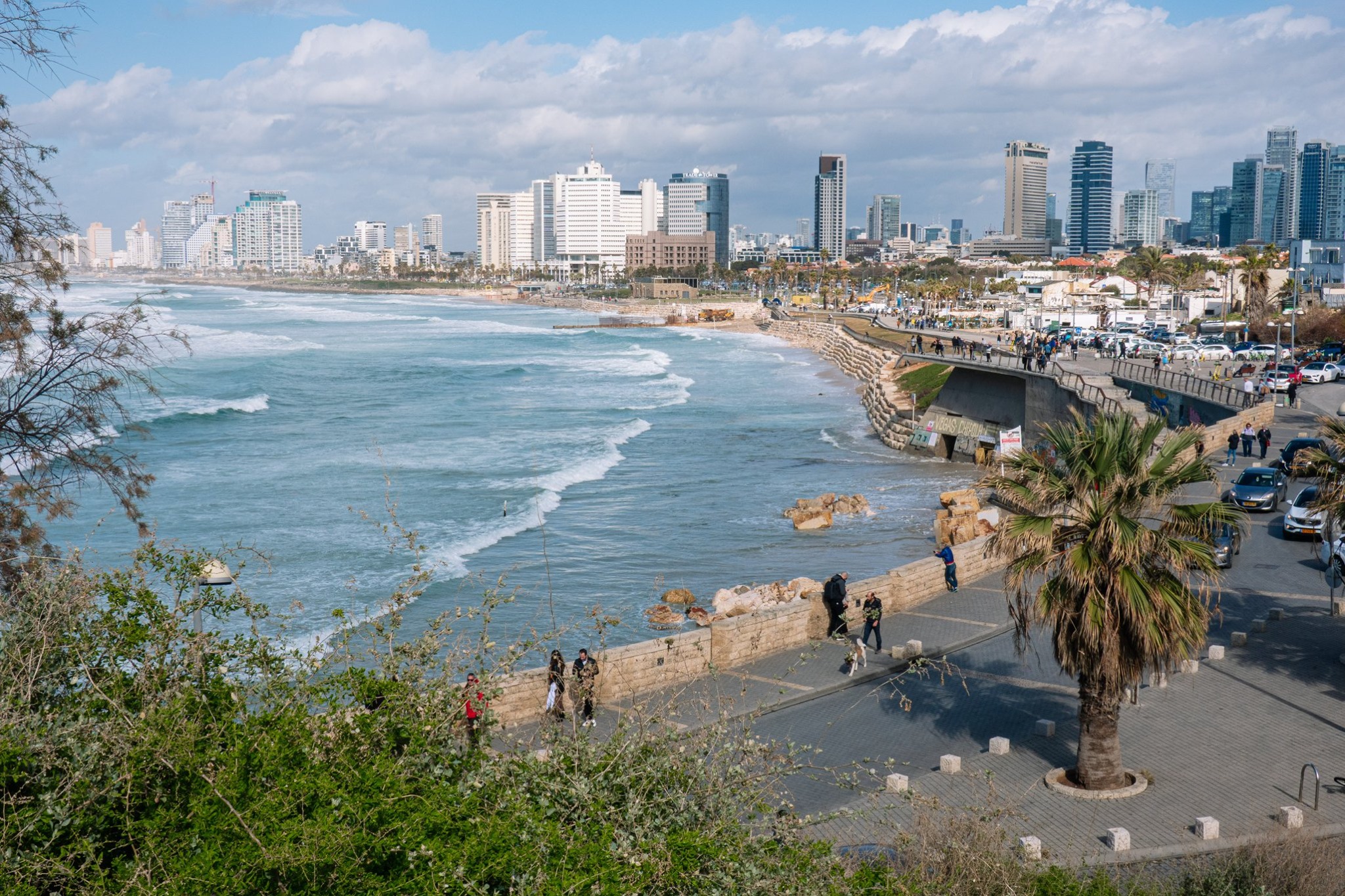
Tel Aviv coastline. Photo credit: © Dmitry Mishin
9. Calendar of Local Events
There are cultural events happening year-round in Israel, so whatever time of the year you visit, the chances are that there will be something great to see, hear or do. If you’re in Tel Aviv in the spring, don’t miss the Annual ‘Leila Levan’ (‘White Night’) where the city comes to life with free performances in every neighborhood - jazz, opera, klezmer, and cover bands - from 8 pm until 5 am. Or why not catch some free opera in Yarkon Park (a huge green space in the city’s north), along with the locals?
If you like to dance, don’t miss the Batsheva troupe, whose home is the Suzanne Dellal Center in the Neve Tzedek neighborhood, or a show at the Cameri Theatre (we’d recommend ‘The Wandering Israeli’). You should also try and visit the impressive amphitheater at Caesarea and enjoy a performance by some Israeli or international singer. And for jazz aficionados, you can’t do better than make a trip down to the Red Sea - their annual Jazz Festival in Eilat offers world-class music with spectacular views thrown in for good measure. In Jerusalem don't miss the Israel Festival with 3 weeks of performances around the city, as well as the Jerusalem Festival of Light.
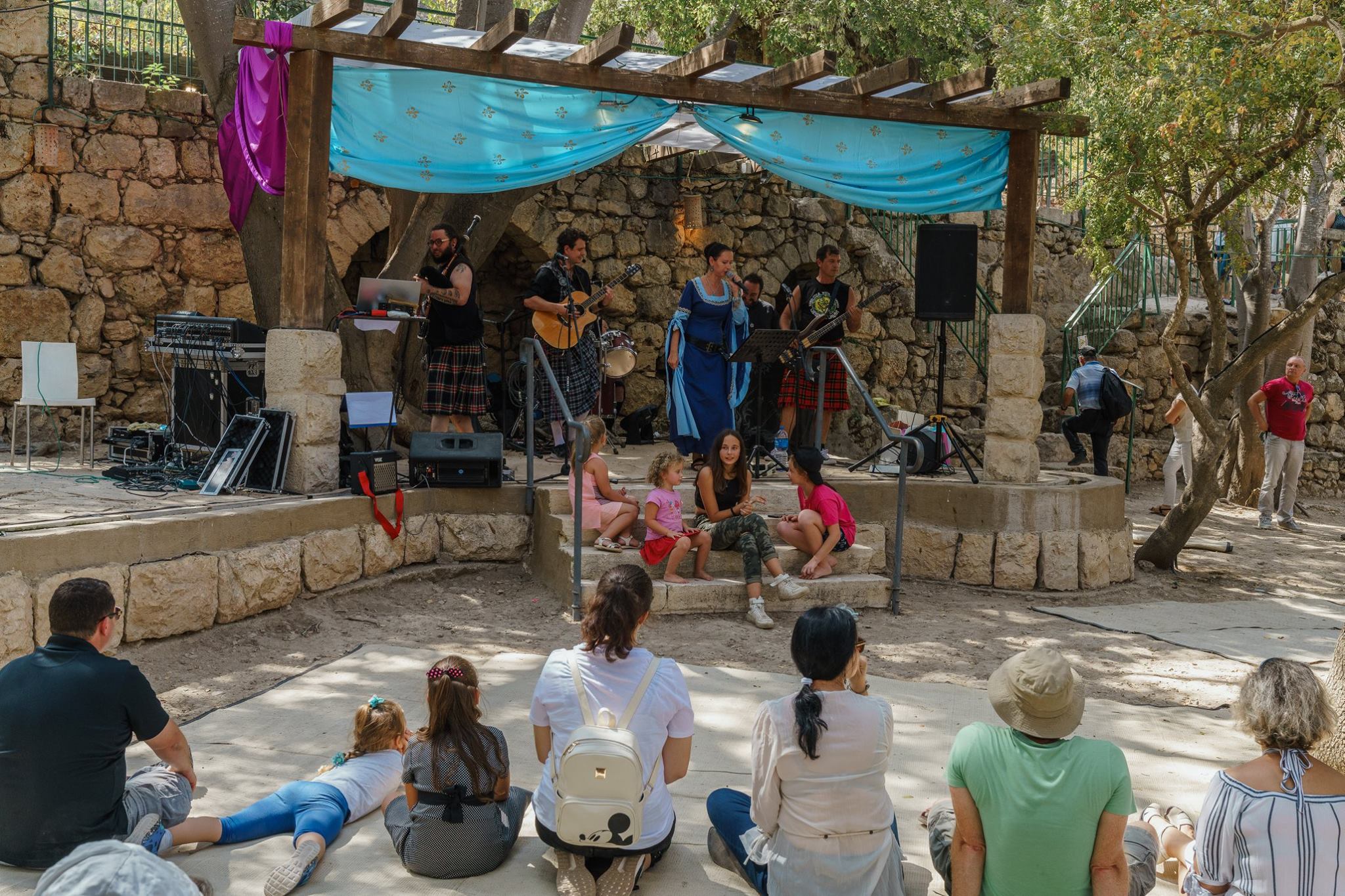
Jerusalem Knights Festival-2018. Photo credit: © Dmitry Mishin
10. A Little Hebrew
Whilst almost everyone in Israel speaks some English (and many speak it fluently) it’s always a good idea to learn a few words and phrases beforehand. Not only will it make your life a little easier, but you can have fun at the Israeli ‘shuks’ (markets) when bargaining for souvenirs. Modern Hebrew looks intimidating (especially because of the way it's written!) but once you’ve learned a few expressions, you’ll be surprised at how simple it can be.
You’ll also be amazed at how pleased locals are to hear you making an effort - there’s nothing like thanking someone in their own language to put a smile on their face. Check out our Hebrew-English dictionary for visitors for some tips.
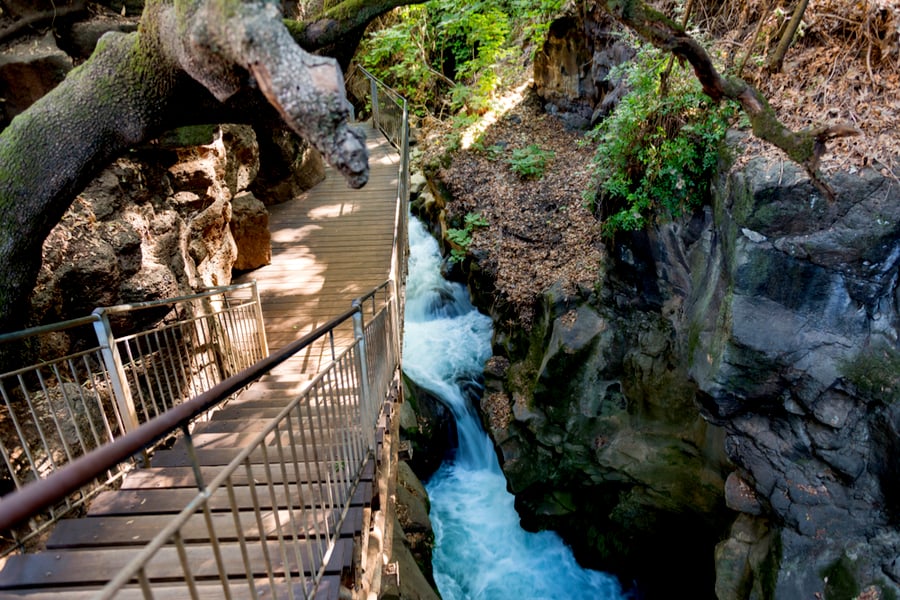
Banias Nature Reserve. Photo credit: © Shutterstock
The choice between traveling on your own and pre-arranged tour packages is often a pain. Israel’s a small country so it’s easy to cover a lot of ground quickly, but there’s no doubt that it punches above its weight in every respect - weather, food, landmarks, scenery, cultural events, and pristine beaches. Whether you’re a culture vulture, a foodie, a pilgrim, or a sun-lover, there’s a perfect vacation waiting for you.
 Login / Register
Login / Register
 Contact Us
Contact Us
 Certificate of Excellence
Certificate of Excellence Guaranteed Departure
Guaranteed Departure Low Prices Guaranteed
Low Prices Guaranteed 24/7 Support
24/7 Support




